Hollandaise Sauce
- By Jennifer Segal
- Updated July 1, 2024
- 3 Comments
- Leave a Review


This post may contain affiliate links. Read my full disclosure policy.
Hollandaise sauce is a classic French sauce that every home cook can master. The secret to making it effortlessly? Let your blender do the hard work!
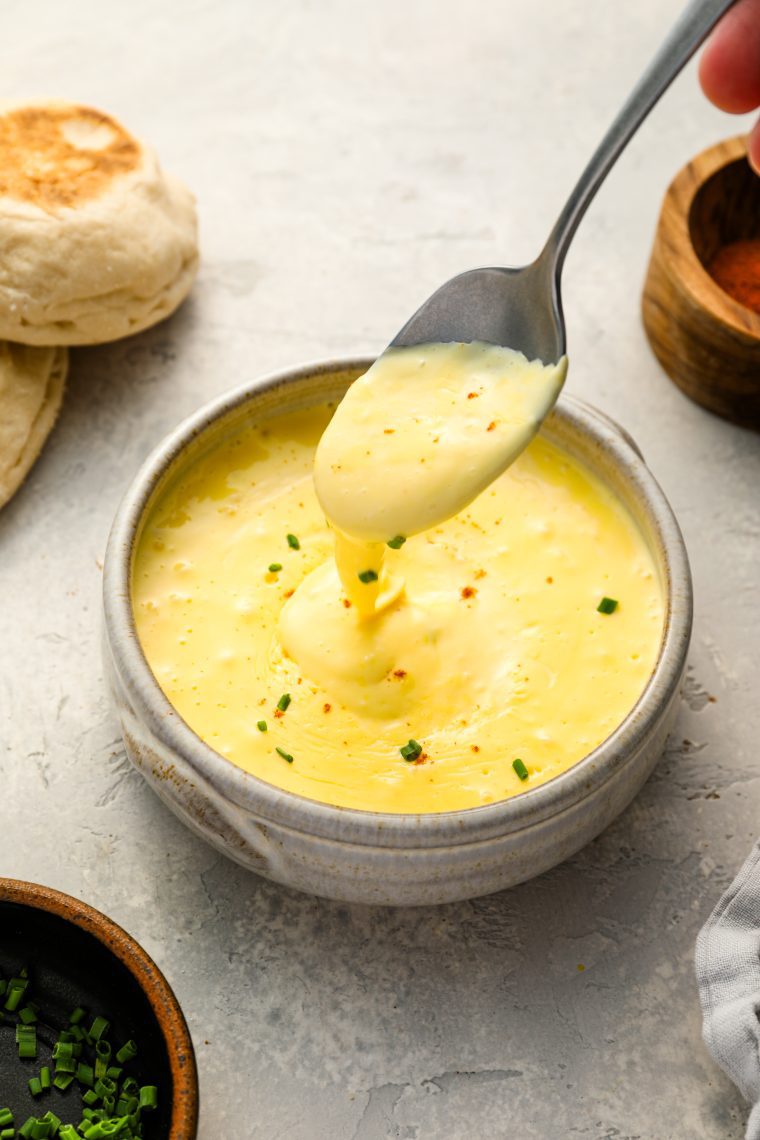
Hollandaise sauce—just the thought takes me back to culinary school and restaurant kitchens! I can still feel the burn in my arms from endless whisking over a double boiler, always on edge about the sauce breaking. But all that effort was worth it for a silky, luxurious sauce—an emulsion of egg yolks, melted butter, lemon juice, salt, and a pinch of cayenne. Hollandaise, also known as sauce hollandaise or “Dutch sauce” in French, is one of the five French mother sauces and the foundation of countless others (béarnaise sauce, anyone?).
Thankfully, there’s now a much easier way to make hollandaise: let your blender do the heavy lifting! That’s right—no more sore arms or stress over a broken sauce. With this simple blender method, you’ll nail it every time. And while hollandaise is best known for topping eggs Benedict, it’s equally wonderful on roasted asparagus, steamed broccoli, or any veggie that could use a little extra love.
Table of Contents
What You’ll Need To Make Hollandaise Sauce
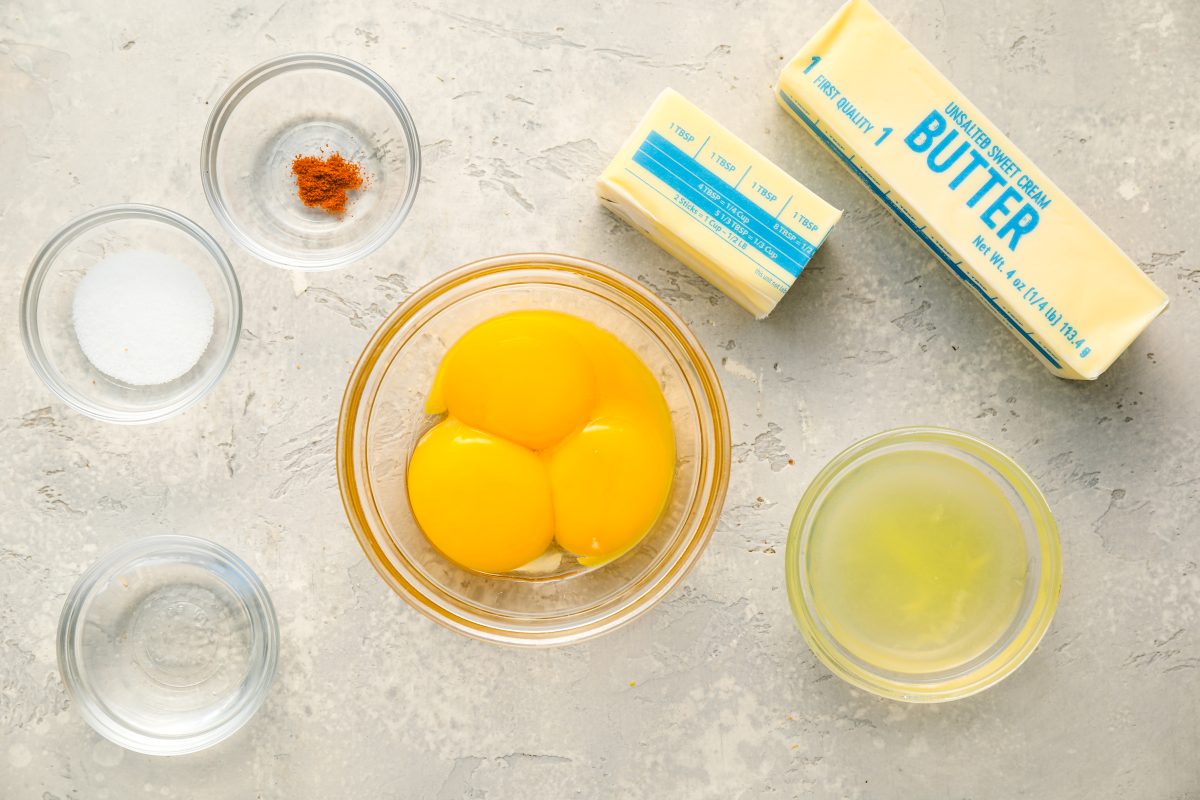
- Egg Yolks: Provide richness and emulsifying properties, giving the sauce its creamy texture.
- Lemon Juice: Adds brightness and tanginess, cutting through the richness of the sauce.
- Salt and Cayenne Pepper: Season the sauce and adds a very subtle layer of heat.
- Butter: Contributes flavor and richness; its emulsifying properties help stabilize the sauce and create a smooth, velvety texture.
- Water: Used to adjust the sauce to the proper consistency.
- Jump to the printable recipe for precise measurements
Step-By-Step Instructions
Add the egg yolks, salt, cayenne pepper, and lemon juice to a blender. Blend until frothy (about 20 seconds).
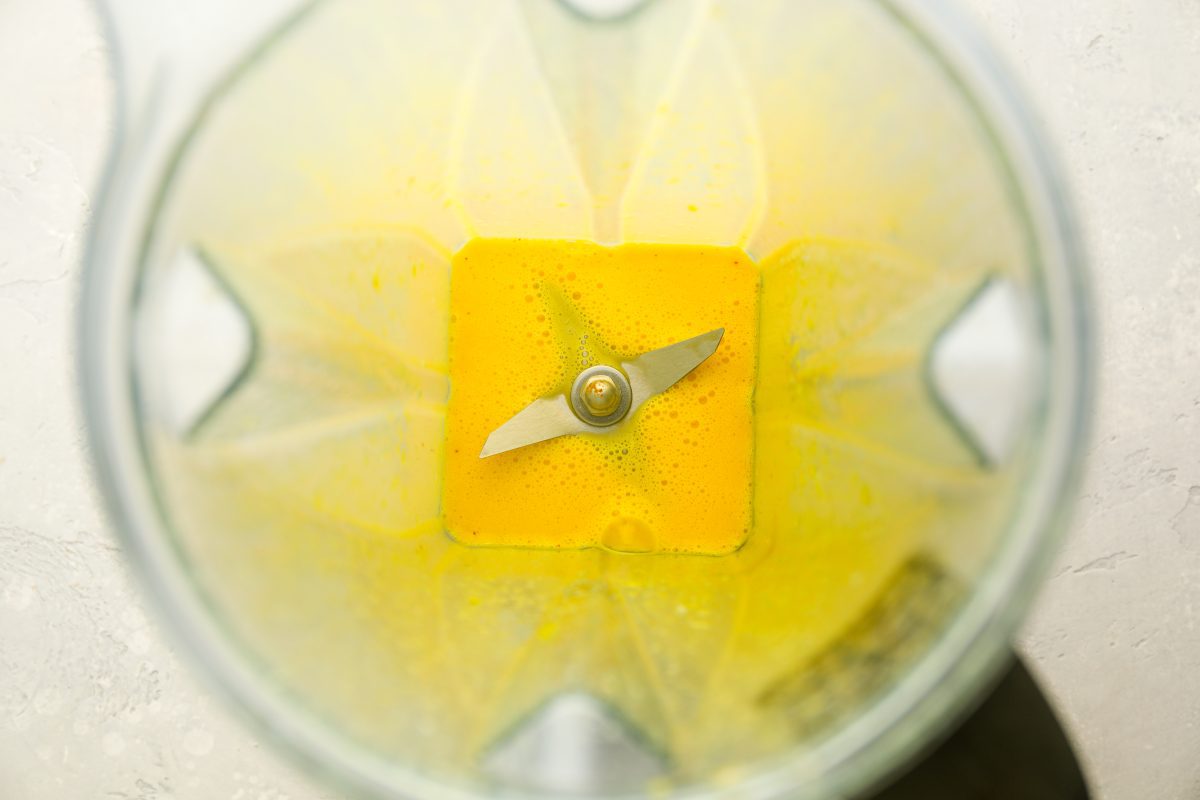
Melt the butter in a small pot over medium heat until bubbling but not browning.
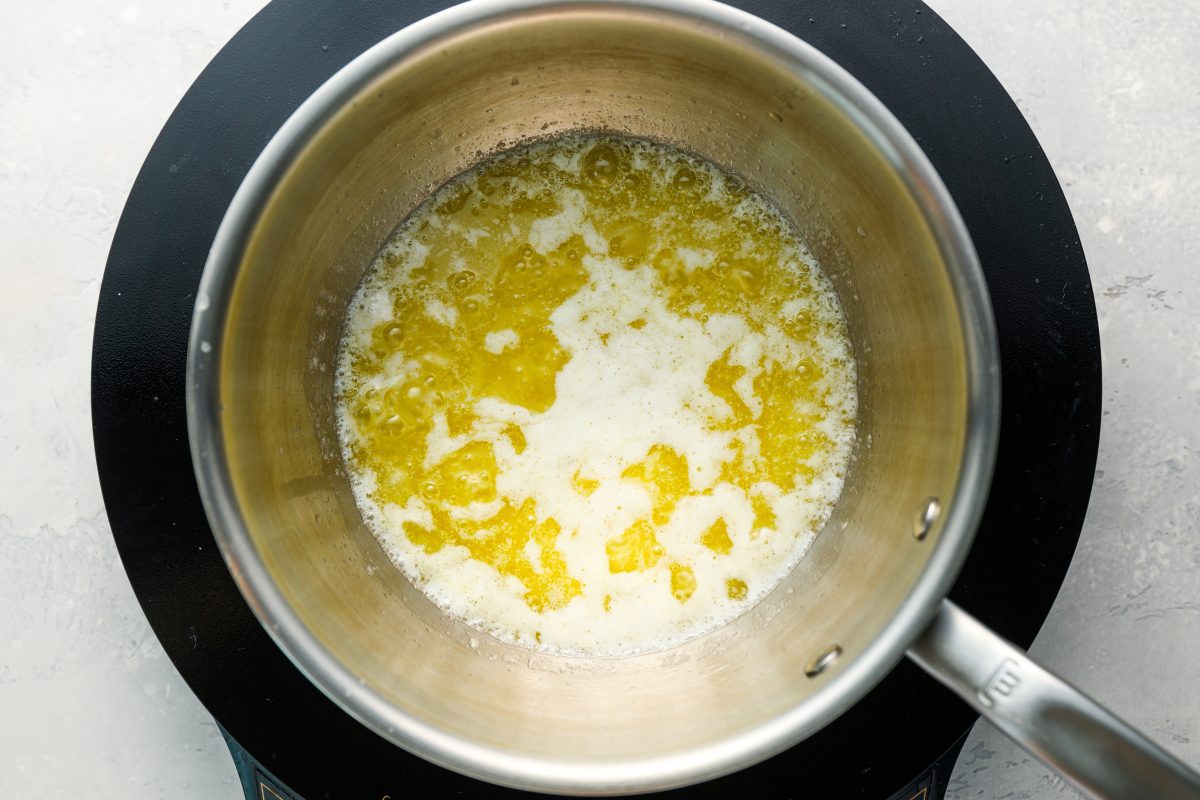
Transfer the hot butter to a liquid measuring cup for easy pouring.
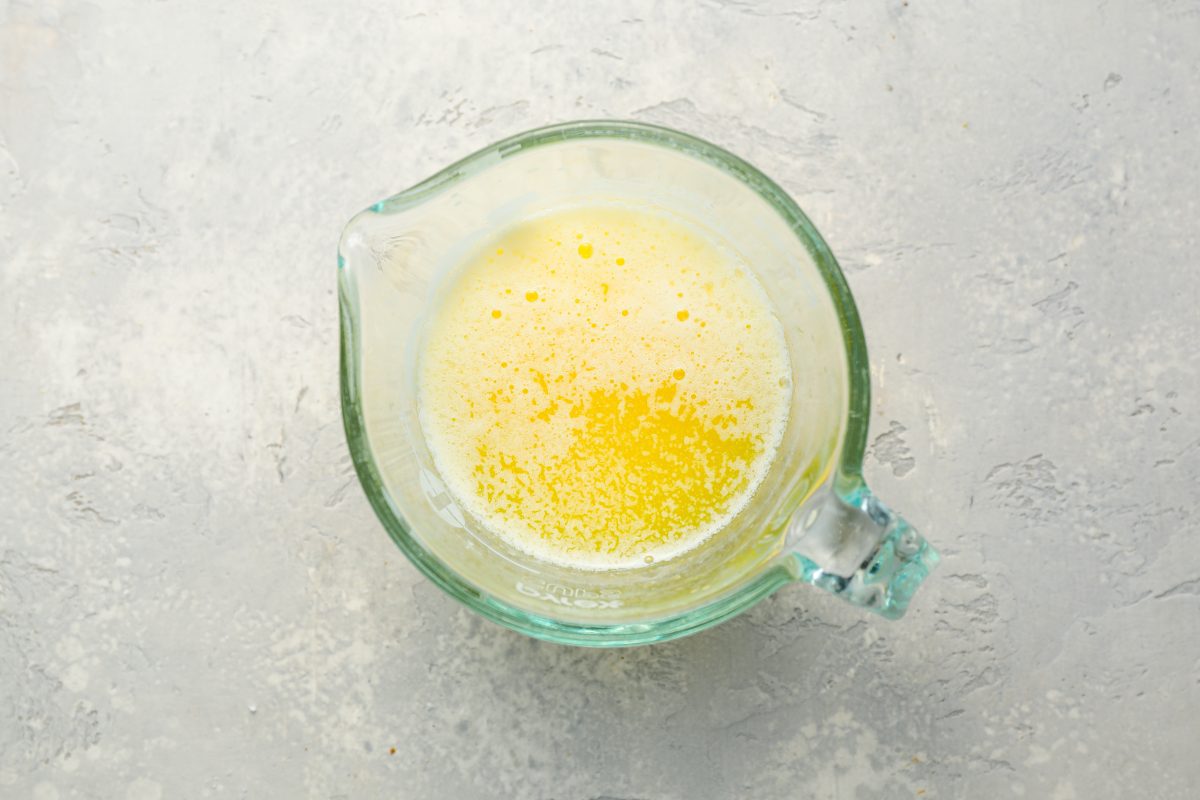
With the blender running on a low speed, open the center knob and gradually add the hot butter to the egg mixture until the sauce thickens.
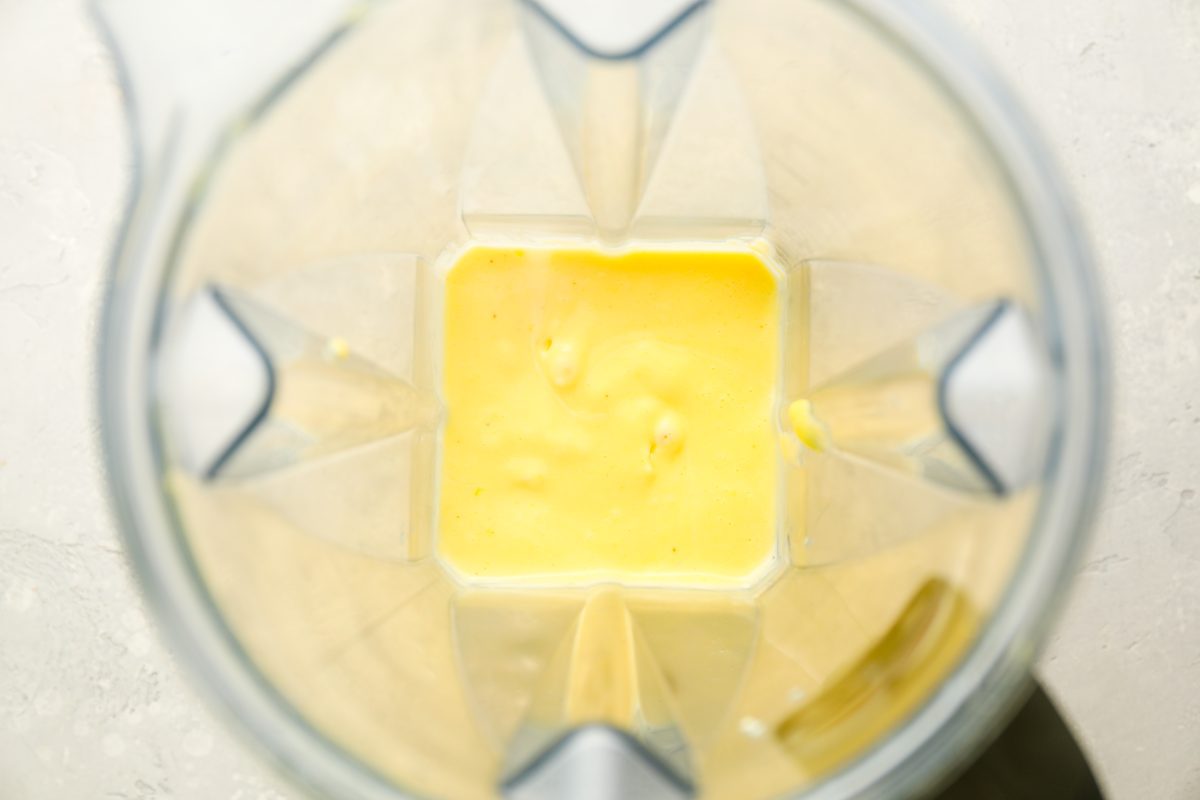
If the sauce is too thick, blend in 1 to 2 tablespoons of hot water until you reach the desired consistency.
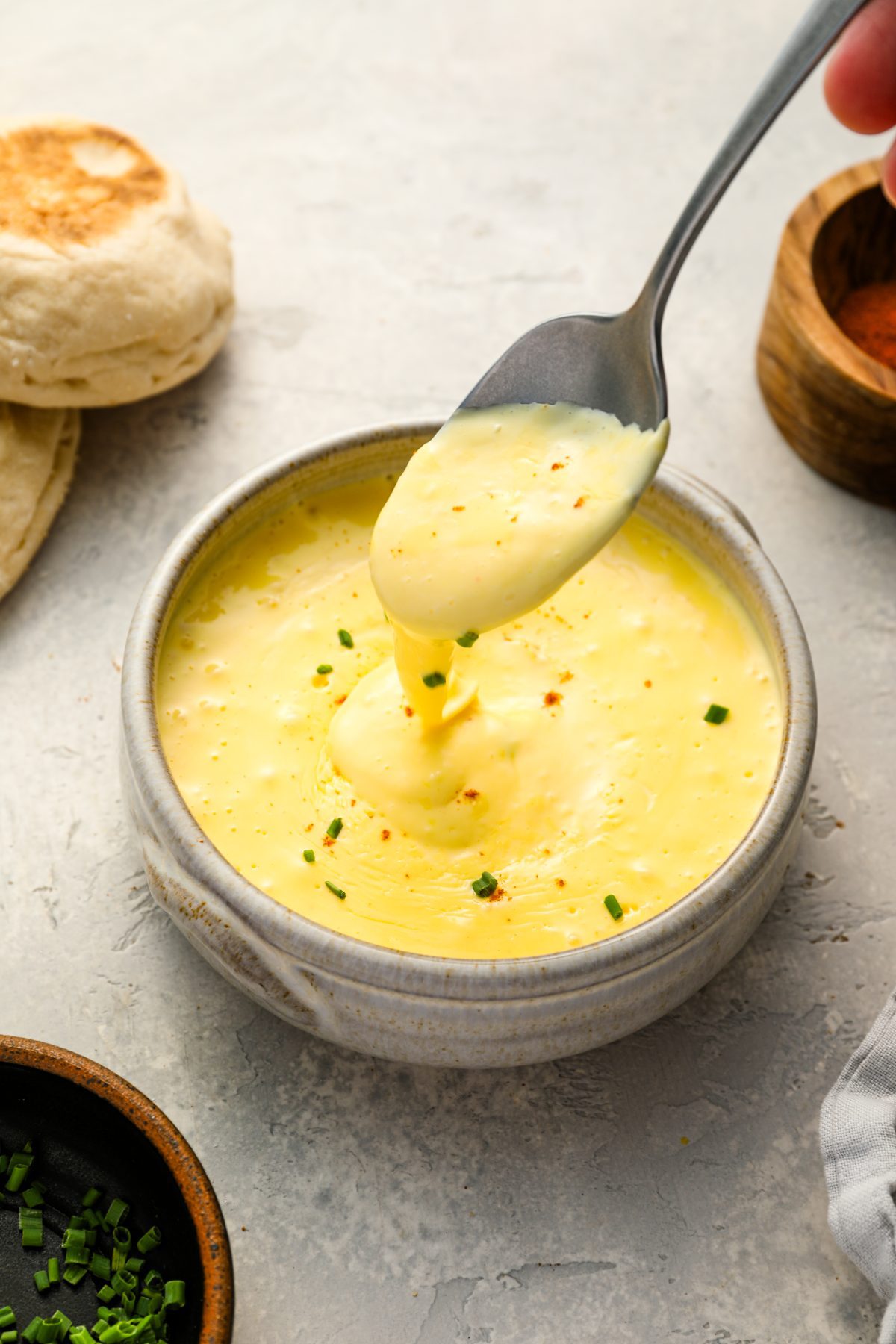
Video Tutorial
Frequently Asked Questions
While hollandaise sauce is best made fresh, simply because you don’t need to fuss with keeping it warm, you can prepare it up to 2 hours ahead of time. To keep the sauce warm, pre-warm a thermos with boiling water, then pour out the water and transfer the sauce inside. Alternatively, use a makeshift double boiler: fill a small pot with water, bring it to a gentle simmer, then remove from the heat. Place your bowl of hollandaise sauce on top. The residual heat will keep the sauce warm without further cooking, preventing it from curdling or separating. If using the double boiler method, remember to stir the sauce occasionally to maintain an even temperature throughout.
Unfortunately, hollandaise sauce doesn’t freeze well. Its texture tends to break down when thawed, resulting in a separated mess. It’s best enjoyed fresh.
No blender, no problem! You can whisk the egg yolks, salt, cayenne pepper, and lemon juice together in a bowl until frothy. Then, slowly drizzle in the melted butter while whisking vigorously to emulsify the sauce.
There are lots of other ways to use Hollandaise sauce! With its creamy texture and subtly tangy flavor, it elevates dishes like fish, chicken, potatoes, cooked veggies, stuffed mushrooms, and even steak.
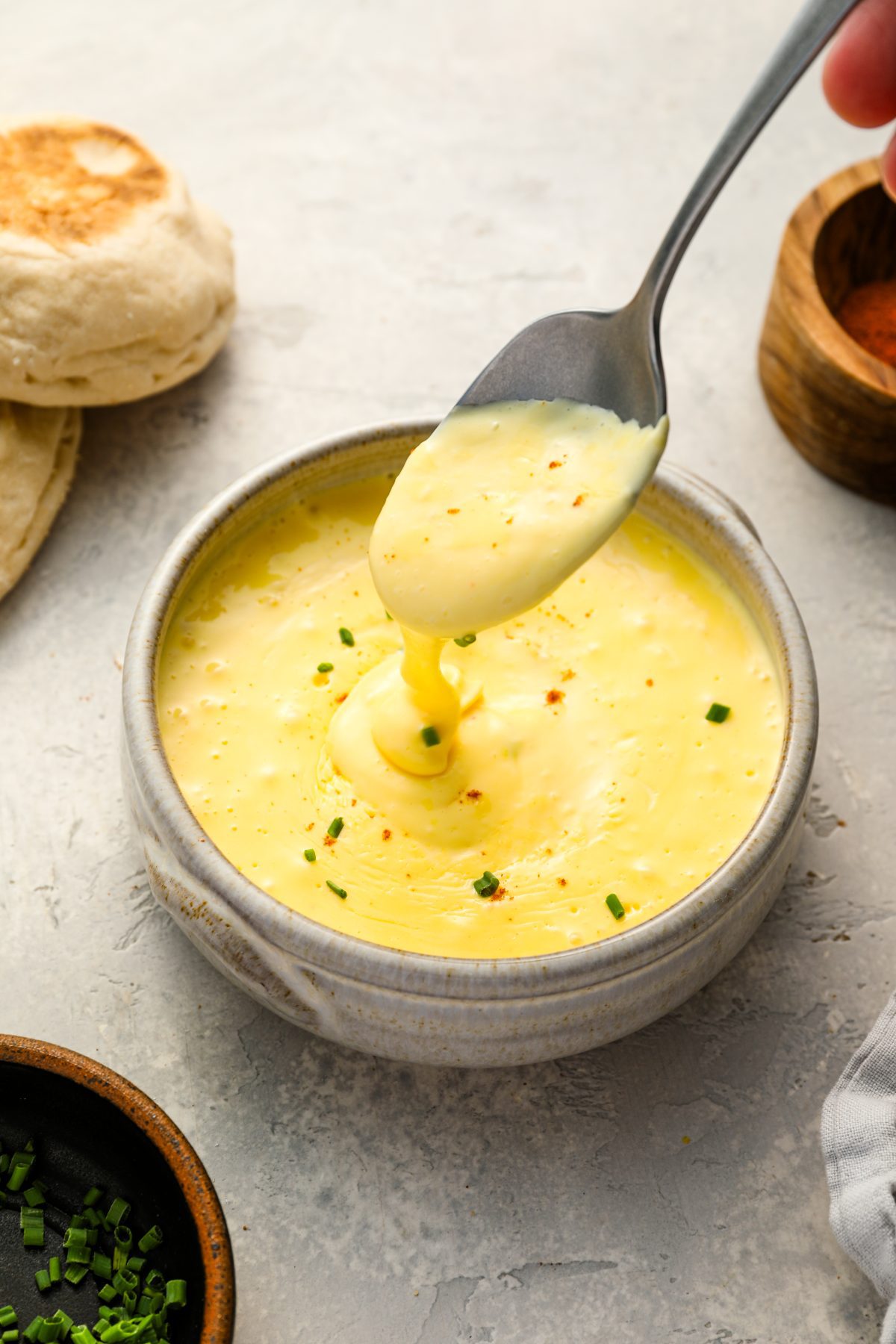
You May Also Like
Hollandaise Sauce
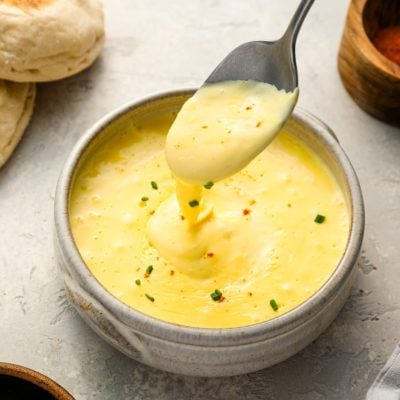
Ingredients
- 3 large egg yolks
- ¼ teaspoon salt
- Pinch cayenne pepper
- 1½ tablespoons fresh lemon juice, from 1 lemon
- ¾ cup (1½ sticks) unsalted butter
- 1 to 2 tablespoons hot tap water, as needed
Instructions
- In a blender, combine the egg yolks, salt, cayenne pepper, and lemon juice. Blend for 15 to 20 seconds, until the mixture becomes frothy.
- Melt the butter in a small pot over medium heat until bubbling but not browning. The butter will be poured into the blender with the egg yolk mixture; for easier pouring, transfer it to a glass measuring cup.
- With the blender running on low speed, gradually add the hot butter in a thin stream to the egg yolk mixture. The butter should be hot to ensure the sauce emulsifies properly.
- Check the consistency of the sauce. If it's too thick, blend in 1 to 2 tablespoons of hot water to achieve a thick but pourable consistency.
- Serve the sauce or transfer to a bowl for up to 2 hours (see make-ahead notes below).
Notes
This website is written and produced for informational purposes only. I am not a certified nutritionist and the nutritional data on this site has not been evaluated or approved by a nutritionist or the Food and Drug Administration. Nutritional information is offered as a courtesy and should not be construed as a guarantee. The data is calculated through an online nutritional calculator, Edamam.com. Although I do my best to provide accurate nutritional information, these figures should be considered estimates only. Varying factors such as product types or brands purchased, natural fluctuations in fresh produce, and the way ingredients are processed change the effective nutritional information in any given recipe. Furthermore, different online calculators provide different results depending on their own nutrition fact sources and algorithms. To obtain the most accurate nutritional information in a given recipe, you should calculate the nutritional information with the actual ingredients used in your recipe, using your preferred nutrition calculator.
Gluten-Free Adaptable Note
To the best of my knowledge, all of the ingredients used in this recipe are gluten-free or widely available in gluten-free versions. There is hidden gluten in many foods; if you're following a gluten-free diet or cooking for someone with gluten allergies, always read the labels of your ingredients to verify that they are gluten-free.
See more recipes:
Comments
Add a Comment Cancel reply
This site uses Akismet to reduce spam. Learn how your comment data is processed.
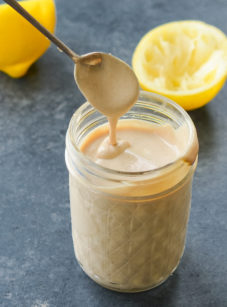

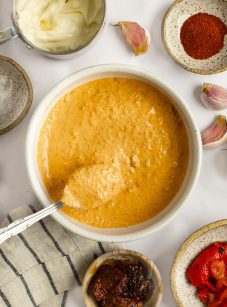
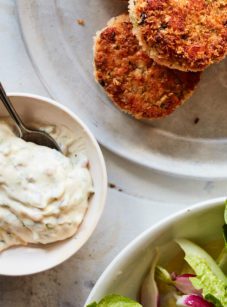
The recipe and the end results are very good. I followed the recipe and instructions exactly as laid out. The Eggs Benedict’s received nothing but compliments.
I used this method and it’s turned out beautifully! I have had success refrigerating leftover sauce and using the next day – I store it in a baggie and run lukewarm water over it until it warms a bit but doesn’t start to cook the eggs. I wouldn’t use it past the next day though. Great recipe!
I wish I would have had this recipe some time ago when I ended up making a curdled, scrambled mess for company one time. This recipe is perfect and so easy to make! Thank you for a great recipe!